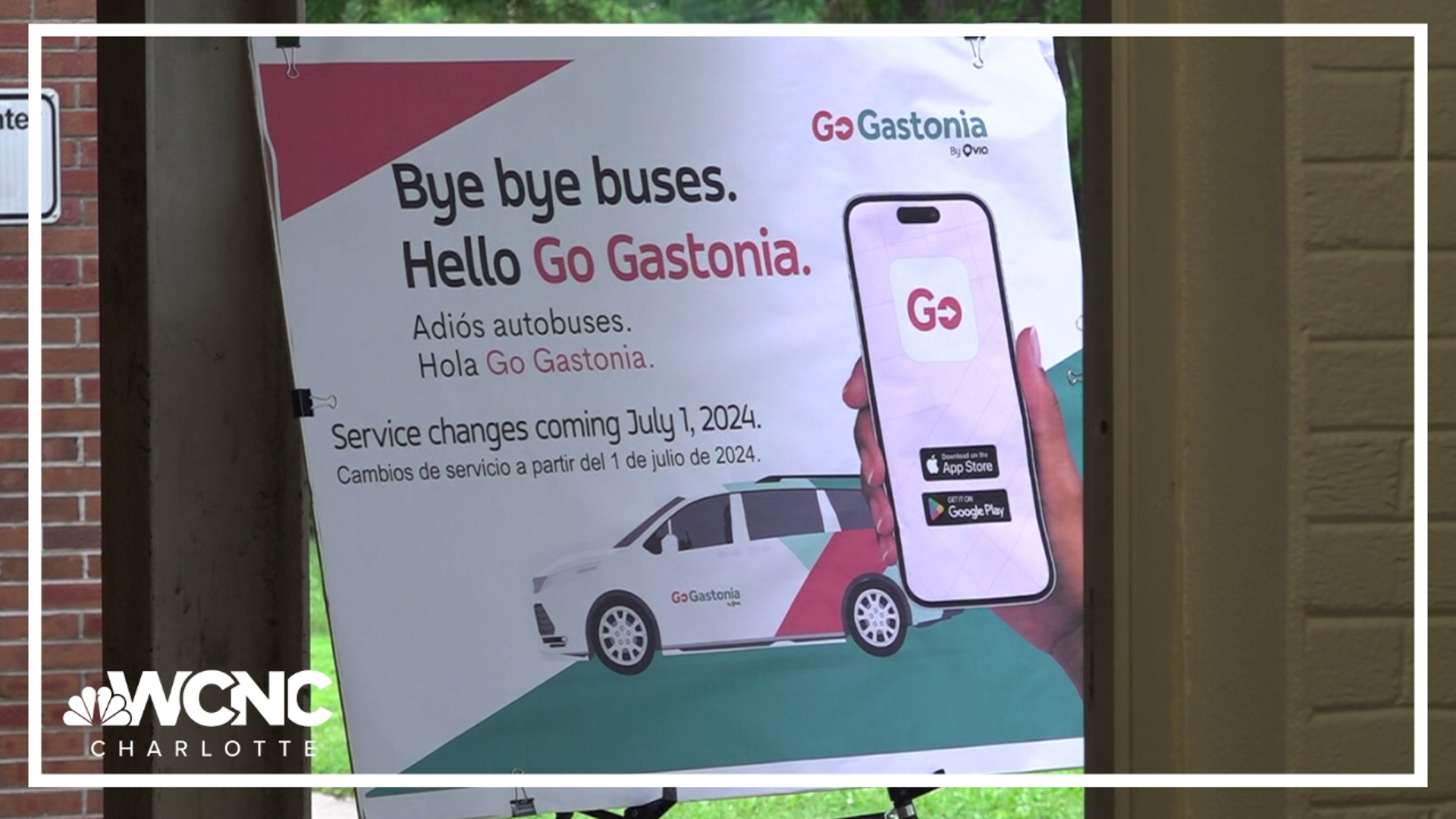GASTONIA, N.C. — The future of public transportation in Gastonia is more micro as the city prepares to shift into a new gear.
Gastonia City Council approved the change in January, which will see Gastonia Transit change from fixed bus routes to on-demand microtransit vans that work similarly to rideshare services like Uber and Lyft. The new service launches July 1 as part of a 36-month contract with River North Transit, expected to cost $1.65 million in the first year.
"We saw a need to provide on-demand microtransit transportation to our residents as our city continues to grow,” said Mayor Richard Franks in January. "This move away from fixed-route buses will provide cost savings and will increase accessibility for everyone in our community.”
Franks and city leaders touted the new microtransit service as a cost-effective option to tackle issues tied to limited service areas, long wait times, an aging fleet of buses, and lack of access to bus stops. Rather than working with fixed-route service, passengers are promised on-demand, curb-to-curb access that can be booked online via computer or mobile app.
On Wednesday, the city held an open house to further discuss the changes set to take place in July. Transportation director Randi Gates said during the open house the move will help them expand who they can serve.
“We’re going from just covering 22 square miles to covering the entire city limits so we are more than doubling service area and providing access to more citizens,” she said.
Right now, Gastonia Transit runs six fixed routes within the city that are characterized as a "pulse" system. Most routes start and end at the Bradley Station on North Oakland Street at regular intervals. The agency covers about 295,000 miles per year and served more than 144,000 passengers in 2023. The system currently averages seven passengers per vehicle hour across all routes.
“This is more corner-to-corner service," added Gates. "[Passengers] will be picked up closer to where they live, closer to where they work, and dropped off closer to the central services that they need. That is really exciting to a lot of people.”
Shifting to microtransit could see rates go up for residents who use Gastonia Transit. In April, the city said one-way fares would increase from $1.25 to $2 for most people, while elderly and disabled passengers would see an increase from 60 cents to $1. The city held public comment sessions in both April and May to hear from residents and has been taking written comments as well.
The City of Gastonia notes the new microtransit service will not displace paratransit services as covered under the Americans with Disabilities Act.
Contact Jesse Pierre at jpierrepet@wcnc.com or follow her on Facebook, X and Instagram.

